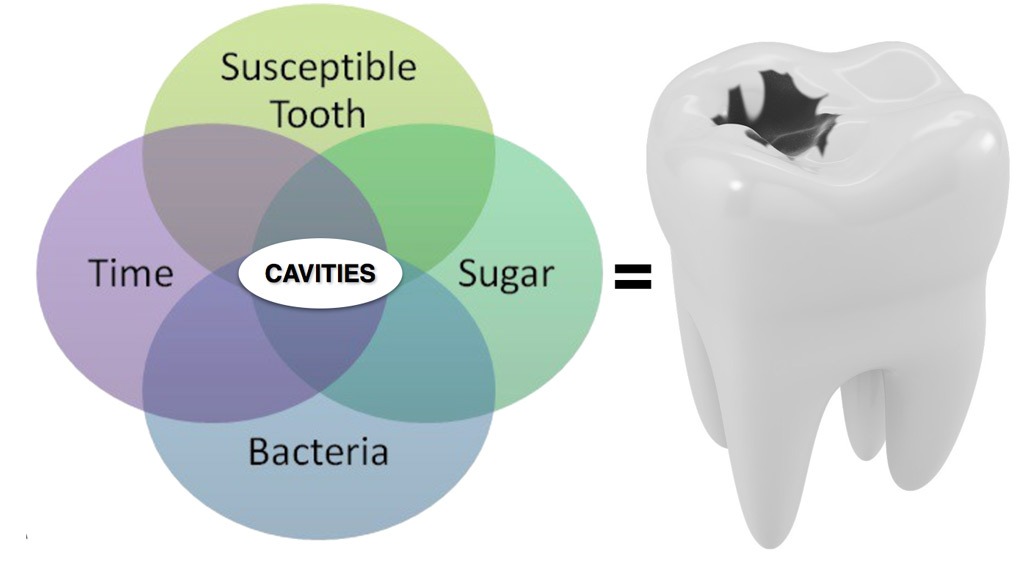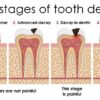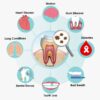Understanding Cavities: The Perfect Storm for Tooth Decay
Cavities, also known as dental caries, are one of the most common dental problems affecting people of all ages. But what exactly causes cavities, and how can we prevent them? The image above perfectly illustrates the four key factors that contribute to cavity formation: a susceptible tooth, bacteria, sugar, and time. When these elements come together, they create the perfect conditions for tooth decay. Let’s break down each factor and explore ways to protect our teeth.
1. A Susceptible Tooth
Not all teeth are equally prone to cavities. Some people naturally have stronger enamel, while others have deep grooves or weaker spots that make them more vulnerable to decay. Factors such as genetics, enamel thickness, and even previous dental work can impact a tooth’s susceptibility. Regular dental check-ups can help identify potential weak spots before they turn into cavities.
Prevention Tip:
- Use fluoride toothpaste and mouthwash to strengthen enamel.
- Get dental sealants to cover deep grooves in teeth.
- Maintain a healthy diet rich in calcium and phosphorus for stronger teeth.
2. Bacteria
Our mouths are home to millions of bacteria, some of which are beneficial, while others contribute to decay. The primary culprits are Streptococcus mutans and Lactobacillus, bacteria that thrive on sugars and produce acids that erode enamel. Plaque, a sticky film of bacteria, forms on our teeth daily and must be removed through proper oral hygiene.
Prevention Tip:
- Brush at least twice a day and floss daily to remove plaque.
- Use an antibacterial mouthwash to reduce harmful bacteria.
- Visit the dentist regularly for professional cleanings.
3. Sugar
Sugar plays a crucial role in cavity formation because it feeds harmful bacteria. When bacteria consume sugar, they produce acid, which weakens tooth enamel over time. Sugary snacks, sodas, and even natural sugars in fruit juices can contribute to decay if not managed properly.
Prevention Tip:
- Limit sugary foods and drinks, especially sticky or acidic ones.
- Rinse your mouth with water after consuming sweets.
- Chew sugar-free gum to stimulate saliva production, which neutralizes acids.
4. Time
Time is a critical factor in cavity development. The longer sugar and bacteria remain on your teeth, the more acid they produce, leading to enamel erosion. If plaque is not removed within 24-48 hours, it can harden into tartar, making it even more difficult to clean your teeth.
Prevention Tip:
- Brush and floss regularly to prevent plaque buildup.
- Don’t snack frequently—give your teeth time to recover between meals.
- Schedule regular dental check-ups to catch early signs of decay.



